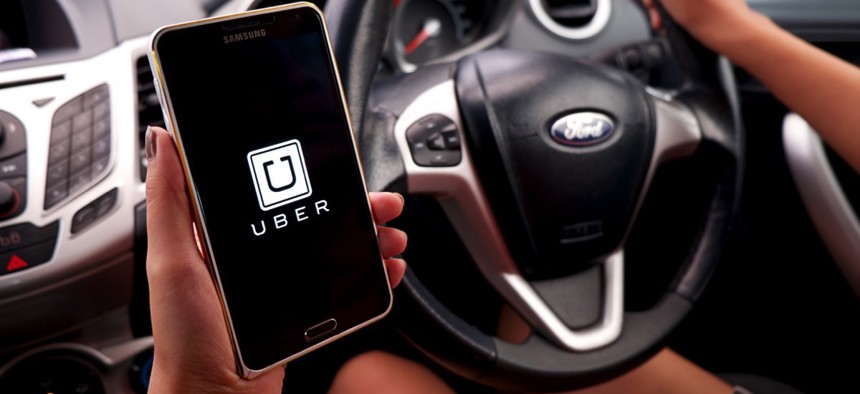Uber vs. Austin: A Battle of Driver Background Checks

Prathan Chorruangsak / Shutterstock.com

Connecting state and local government leaders
The Texas capital is the latest municipal flashpoint over regulating transportation network companies like Uber, which claims its security checks are stronger than the city’s.
Austin is the latest city to consider more stringent regulations on industry-disrupting transportation network companies, but according to San Francisco-based Uber, the local government in Texas’ capital city isn’t holding its licensed chauffeurs to the same standards on driver background checks.
On Oct. 15, Austin City Council members directed staff to draft two ordinances requiring ride-hailing services to have prospective drivers undergo fingerprint background checks and pay an annual operating local fee going toward road maintenance.
Last Tuesday, Uber countered with audit results showing that 53 of 163 city-permitted chauffeurs that completed its background check failed the process.
We feel our background checks are robust and thorough. We strongly encourage you to heed the Austin Transportation Department’s recommendation and require the City to adopt Uber’s background check process. Since background checks only provide a snapshot into an individual’s history, we also urge the City to consider Uber’s overall approach to safety as a potential model for new standards for Austin taxis.
Of the drivers who failed Uber’s background check, 19 had recent serious offenses like felony assaults, DUIs and hit and runs, according to McCottry’s letter.
Austin’s fingerprinting resolution, spearheaded by Councilmember Ann Kitchen, further seeks nationwide background checks for drivers of ride-booking services and a third-party company to manage fingerprinting—something that’s not required of taxi drivers and chauffeurs.
The chair of Austin’s Mobility Committee defended the intense regulations as means to reduce the risk of assault—the city’s seen four ride-hailing-related sexual assaults in the past three months, according to SafePlace Community Advocacy Director Emily LeBlanc—and saying good post-conviction conduct accounts drivers with records obtaining city chauffeur licenses.
“People are not allowed to drive for taxis that have not gone through a rigorous process that includes determining if they’re eligible to drive,” Kitchen told KXAN-TV.
Uber doesn’t generally operate in cities that institute too many barriers for drivers, though it does still run in Houston, which requires fingerprint background checks, because the city opened its doors to the service early.
Officials in Birmingham, Alabama, also want to see potential ride-booking service drivers submit to city-initiated background checks, which Uber is resisting, as do those in Portland, Oregon, which on Friday released new rules for so-called transportation network companies.
Currently, Uber’s background checks entail having drivers submit identity information like Social Security Numbers, but the ride-booking company recently tested the effectiveness of Live Scan fingerprinting on 500 drivers in Los Angeles.
Uber spokesman Matt McKenna told Forbes in October that the company is “always looking at ways to use technology to improve safety for riders and drivers before, during and after a trip.”
The test could mean a change in Uber’s policy is coming, but until then some cities are treading lighter than others.
“If we follow through with these regulations, we may not have Lyft or Uber or other [Transportation Network Companies] operating here in Austin,” Austin Councilmember Ellen Troxclair told The Austin Monitor.
(Photo by Prathan Chorruangsak / Shutterstock.com)
Dave Nyczepir is News Editor for Government Executive’s Route Fifty.

NEXT STORY: Pa.’s Budget War Puts More Programs in Jeopardy; Next Steps for Ohio Minimum Wage Plan





